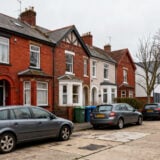By Ritchie Clapson CEng MIStructE, propertyCEO
Regardless of the size of the project or the experience of the developer, finding the right property or piece of land to develop in the first place is always top of the to-do list. Fantastic deals can be found via auction houses, property listings, direct-to-vendor, and commercial estate agents. But which approach is most likely to result in a profitable project?
Many new developers plump reach for their laptop. The internet allows access to various commercial property web portals, and if we register our details and set up a few searches, then every new property hitting the market that meets our selected criteria will automatically hit our inbox.
But experienced developers know that the best deals never make it onto the internet. They stay resolutely off-market. Limiting efforts to what comes up on a laptop screen means missing the really good deals.
By off-market I don’t mean that these properties aren’t for sale, nor that commercial agents aren’t involved – quite the opposite. Commercial estate agents are hands-down the best source of opportunities for developers, but you will need to intercept these opportunities after the agent has secured them but before they advertise them to all and sundry.
This is the default way for an agent to sell a property (commercial or residential):
1. A client is secured, and instruction taken.
2. Someone from the office visits the site, measuring up and taking photos.
3. This information is used to create a pdf document.
4. This pdf is emailed to the agent’s database, the information is added to the agent’s website as well as to the property portals to try to find a buyer.
The goal is to draw interest from a large number of potential buyers. Perhaps a couple will decide to make an offer, one of which (after some negotiation) will eventually be accepted, and things will then proceed to the next stage.
This process works, but it is labour intensive, and it can take some time to come off.
For many agents, a more attractive approach is to pull out their little black book of hot buyers and select a handful they know will be interested in the property. The conversations will likely include a variation of the line I’m only talking to a few of my best buyers.
It’s easy to see how this can work well for both the agent and the vendor. There’s no measuring up or taking photos, and no marketing other than a handful of phone calls. Only a few viewings are carried out within twenty-four hours, involving people the agent knows are likely to be interested in buying the property. And if they sell it, the agent gets their commission more quickly and incurs fewer costs, plus the vendor gets a good price and a quick sale.
If no hot buyer is interested, the property ends up on the portals where the slipper-clad newbies are gathered. In other words, if you’re looking exclusively online, you only see the deals that the hot buyers didn’t want. An online bun fight is not where you want to be. So, how do you become a hot buyer?
Like many aspects of property development, the key lies in building personal relationships. An agent will need to view you as a strong potential buyer, and this means you’ll need to do the groundwork necessary to prove yourself worthy of being contacted.
There isn’t a clever algorithm identifying which hot buyers would be interested in any particular deal. The agent will create their own mental list of buyers who might be interested. It follows, then, that to be a hot buyer, you need to be at the forefront of their mind and not just sitting on a mailing list.
Many new developers meet with an agent, reflect afterward that it went well; the agent seemed very friendly, said they were confident they would be able to send them lots of deals and promised to stay in touch. The developer gets a steady stream of emails every week, making them aware of new instructions. But they haven’t achieved hot buyer status.
Hot buyers aren’t people that meet an agent once; hot buyers are the ones that regularly call the agent every few weeks to stay in touch and try and build a relationship. They’ll invite the agent out for coffee or lunch and make a point of creating rapport. In short, they’ll make it easy for the agent to remember them when the right deal comes up. Is the developer a ‘mate’? No, just someone who has taken the effort to build a friendly yet professional relationship with them







